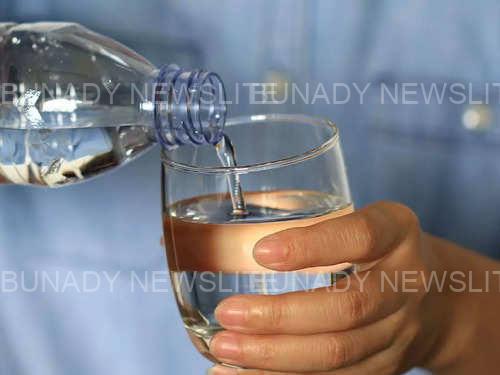The Amount Of Water You Should Drink To Reduce Blood Pressure
Drinking adequate amounts of water plays an important role in maintaining overall health, including helping to regulate blood pressure. While there is no single, universally recommended amount of water for everyone, staying well-hydrated is crucial in controlling high blood pressure (hypertension)....READ ORIGINAL & FULL CONTENT FROM SOURCE | READ ORIGINAL & FULL CONTENT FROM SOURCE...
Proper hydration can improve circulation, help maintain a healthy heart, and support kidney function, all of which contribute to optimal blood pressure levels.
How Water Helps Lower Blood Pressure:
1. Improved Circulation: Drinking enough water helps ensure that your blood remains at a consistent volume and that blood flows freely through your veins and arteries. This can reduce the strain on your heart and blood vessels, which may help prevent spikes in blood pressure.
2. Hydration and Sodium Balance: Dehydration can cause the body to hold onto more sodium, leading to water retention, which can increase blood pressure. Drinking sufficient water helps the kidneys flush out excess sodium, thus helping maintain a balance that supports healthy blood pressure levels.
3. Heart Health: Staying hydrated also supports proper heart function. When you’re dehydrated, your heart must work harder to pump blood, which can lead to increased blood pressure. Hydration supports the smooth functioning of the heart, helping to reduce unnecessary strain.
How Much Water Should You Drink?
While individual water needs vary based on factors such as age, weight, climate, and physical activity level, a common guideline is to aim for around 8 glasses (about 2 liters or 64 ounces) of water per day. However, those with high blood pressure may benefit from drinking more water, especially if they are physically active or live in hot climates. It’s important to listen to your body and increase water intake if you’re feeling thirsty, as thirst is often an indicator that your body needs hydration.
Additional Tips:
Monitor your electrolyte balance: Make sure you’re not just drinking water but also consuming foods that provide essential electrolytes, such as potassium and magnesium. These minerals help regulate blood pressure.
Avoid excessive caffeine: While water helps maintain hydration, beverages like coffee and soda, which are high in caffeine, can raise blood pressure temporarily. Moderating your intake of these drinks can be beneficial for blood pressure control.
In summary, adequate hydration is key to maintaining normal blood pressure levels. While drinking water alone may not be a cure for high blood pressure, it can play a supportive role in a broader strategy for managing hypertension, along with a healthy diet, exercise, and medication when necessary.

